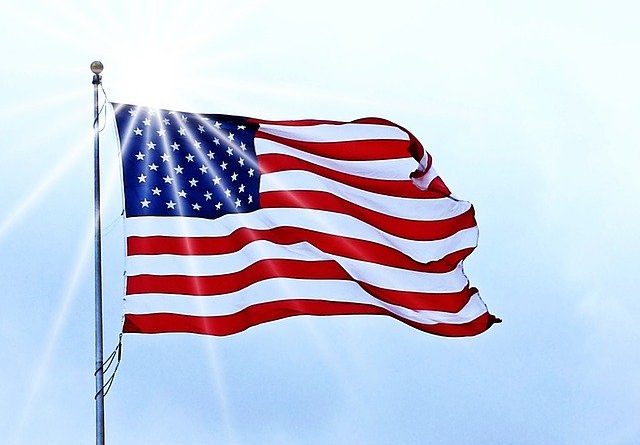The United States of Anti-Sociality: How Loving Ourselves Became a Catalyst for Hating Others
It was my last day as a sex offender treatment intern in a state-wide prison system. My clients were all saying goodbye to me in our final treatment group together. We finally got to Lloyd Welch the subject of Mark Bowden’s book The Last Stone. He asked me, “Earl, you have a lot of information. What are you going to do with it?”
I said something unmemorable for the occasion. I may not have ever realized my dream of being on the Oprah Winfrey Show as that great writer, but I did get to sit in a cinder-block, level-five prison with one of the more infamous people of a still unsolved case: the rape and murder of two abducted sisters. It is said that Welch abducted them and later disposed of the bodies, though he denies participating in the rapes.
I often get asked in a rather accusing tone why I care about such people as child rapists, pedophiles, and, the worst, extreme sadists. I often am asked why I don’t care about survivors of child abuse, as if my working with those with sex offenses is a kind of guilt by association, that there is nothing new to learn from monsters. If I am there, then I must be one of them.
My answer is that I am human as they are, and that needs to be enough. If those questioning don’t understand that then they have a lot more work to do. It’s not about me; it’s about them.
But in doing 15 groups per week where about one quarter of our inmates were anti-social, I began contemplating Mr. Welch’s question. What am I going to do with all that information? Information that no one really hears on the outside. If they hear it, it is filtered through sensational media. We all are scared to death of the truth. Ironically, there is a lot of truth in prison. When I first heard the gates lock behind me, I realized that I am with many more inmates than corrections officers.
No, I was not afraid of Mr. Welch. No, I did not hate him. But I also knew of his life and the life of so many men that committed crimes against children, few of them pedophiles. In fact, most of our pedophiles (which really means those attracted to children under twelve) were virtual, non-contact offenders. It was more about opportunity, past trauma, and poorly-made choices for many of these men. For others, it was a lack of empathy.
I cannot write the truth in its entirety here because it would be too traumatizing for most readers. When I say it, I mean it. So, I will tell a story that will make my point.
One day, we had a conversation with let’s call him Mike. Mike was charged with fondling a child in a daycare setting. He was describing how while working at the daycare, he took his colleague’s credit card to buy things he wanted at a major discount store. Here is the conversation.
Therapist: “Why did you take her credit card?”
Mike: “I wanted to get some stuff at the store.”
Therapist: “So, you needed money?”
Mike: “No, I have money. I work.”
Therapist: “Then why did you take her card?”
Mike: “I did not want to use my money for stuff at a discount store.”
Therapist: “But you took a card that was not yours.”
Mike: “So, she can just call and get a new one.”
Therapist: “What about her feelings? She must have been very upset.”
Mike: “She will be fine.”
Though many in the room found this conversation funny, the humor in it was that Mike simply did not get what the big deal was because he had no empathy for his actions. This is a major red flag when dealing with what some call a psychopath. In fairness, many “psychopaths” live among us and do perfectly fine. They raise kids, are successful at work, and most do not murder people. The same is true for many that are attracted to kids. The danger is often when these individuals have what we call comorbid factors, other diagnoses such as Anti-Personality Disorder, Narcissistic Disorder, or Borderline, the personality disorders. Paraphilia (what many see as sexual “fetishes”) are not disorders unless they cause great distress or elevated risk of suicidal or homicidal ideation. That can be seen in the therapists’ “bible” called the Diagnostic and Statistical Manual of Disorders (DSM-5).
However, Mike’s behavior can be a learned behavior, and my concern is that the United States of America has become the United States of Antisociality.

Our Nation’s failure during this pandemic is a result of a lack of civic duty to one another regardless of our political leanings. As is often said by political scientists, we are all more alike politically than we think we are, yet do we really know our neighbors, and more important, do we care?
I am not here to damn those of you that question vaccines, the possible danger they may cause, or to call anyone stupid for not wanting a vaccine. Such would be childish and counterproductive, but everywhere we look, that is what we see. Name calling, accusing, and people getting information from sources they like, not from sources they need. This behavior appears very anti-social. If we are only invested in ourselves then we are that much closer antisociality.
In fact, the U.S. has a history of liking some rather anti-social characters like Tom Sawyer or those loner vigilantes, total psychopaths, that take justice into their own hands and deliver extreme violence and destruction to everything and many others around them for a “just cause.”
Our fear of monsters has made us fear touching in schools so much so that many kids go without hugs, holding hands, or any real physical touch. They are submerged in a culture of “getting noticed” at all costs, and to get followers for the sake of getting followers. As a six-year-old girl put it in Parenting Magazine a few years back, “When I grow up, I want to go to Harvard and become a princess.” What that child understood was that education is important, but at the end of the day, a girl has to look good.
For boys, being noticed often comes at the end of a fist or a Glock. For kids struggling emotionally, psychologically, and socially, the only way to get noticed is often through acting out and getting extreme. Even when they ask for help, they are often ignored or silenced.
Consider this. How can any of us get the President of the United States to make a statement about us or an act that we do? All too often, the answer is be anti-social. The worse, the better. That is scary. I think the string of school shooting we see has become a kind of anti-social competition. As psychiatrist Dr. James Gilligan stated, people do not kill for immoral reasons. In their minds, they kill for moral reasons. The shooter kills for his moral reasons, and the state executes him for its moral reasons. All of this is destructive, anti-social, and destroys human life.
While we all think that gun control or blaming parents will help, the truth is that our distain, insensitivity, and rude behavior, our focus on liability, not humanity, is making us all act in an anti-social way. Our desire for tolerance has arguably created one of the most intolerant societies in U.S. history.
A few years ago, I walked into my kids’ school and heard this conversation between a young boy and an administrative assistant. The boy was in trouble for a fight.
Assistant: “Why are you causing trouble?”
Boy: “I was upset because my stepfather is mean to me and hits me.”
Assistant: “You should not talk about that. Keep family things personal. Don’t bring that up at school.”
She asked him why, and he bravely told her. She shut him down.
That is a very example of a school employee being anti-social and muting a boy’s cry for help. He is told to bottle it up.
In public schools today, kids often cannot hold hands, touch, and any contact is forbidden and only allowed by family. The problem is that stranger danger is largely a myth. It’s among close people and the family where most abuse happens.
My son said this when his sister told her dad what happened at school. “Yes, she kissed me, and that was, I guess, kind of inappropriate, but I liked it.”
If that was found out, it’s no big exaggeration that the girl could be charged as a sex offender. So, there you have it full circle. People are more alike than we think. In the case of the United States, we all are more anti-social than we think. In the end, I think most mental illness is caused by society, not by the person.
The opinions and analyses that Earl writes are his own and are not necessarily the positions or views of his employers, the agencies he supports, or that of his colleagues. Reach out with comments or questions.

